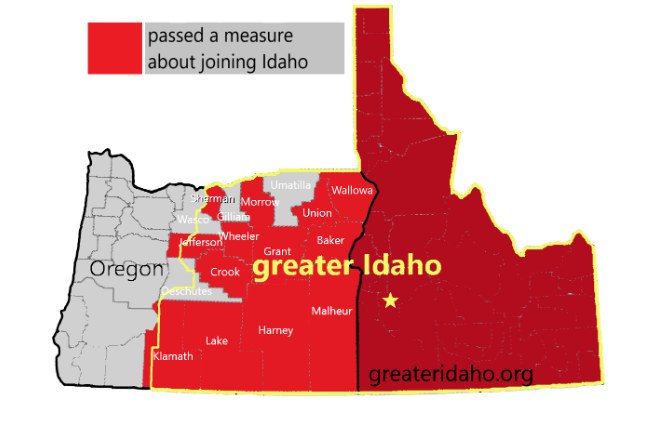On Tuesday, voters in Crook County passed measure 7-86, which asked voters if they support negotiations to move the Oregon/Idaho border to include Crook County in Idaho. The measure is passing with 53% of the vote, and makes Crook County the 13th county in eastern Oregon to pass a Greater Idaho measure.



So, this sort of thing requires both Congressional and state approval.
US Constitution, Article IV, Section 3.
Looking at the map, I’d guess that this isn’t because of fundamental geographical differences, but because the current party split tends to be a rural-urban one. Here’s a population density map for Oregon:
https://d43fweuh3sg51.cloudfront.net/media/media_files/6ee39caa-dd64-494c-b0c6-bb29e1bbee0e/4ab7be15-971f-442b-8fd0-c1134782a003.jpg
The more rural areas of Oregon, the counties without cities, are, based on current political coalitions, politically more similar to Idaho than to liberal coastal Oregon.
https://en.wikipedia.org/wiki/Sixth_Party_System
A state isn’t being formed: they’re just moving the lines. So I don’t think that comes into play.
They’re not, though. Not without the permission of the Oregon state government, the Idaho state government, and the US congress. That’s the point. This is a tiny portion of the population of Oregon. They don’t get to just decide they live in Idaho now.